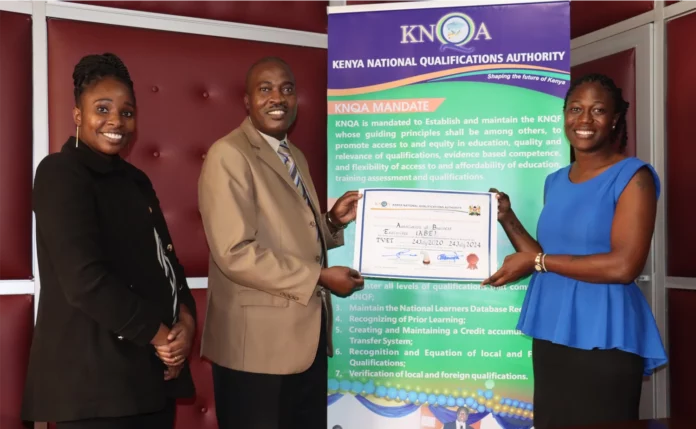The Kenya National Qualifications Authority (KNQA) is proactively partnering with the industry to tackle the pervasive issue of skills mismatch within the country, as highlighted by Acting Director General Alice Kande. Speaking in Kisumu during a panel discussion focused on Technical and Vocational Education and Training (TVET), Dr. Kande emphasized the government’s commitment to bridging the gap through the establishment of a robust Recognition of Prior Learning (RPL) system. This system aims to ensure that industry-relevant skills and competencies are acknowledged and certified.
The event, which drew over 70 participants, was organized by Humber College, Bondo Technical Institute, and Sigalagala National Polytechnic. Dr. Kande’s remarks echo the Ministry of Education’s ongoing effort to review the RPL policy framework to align it with the new National Economic Agenda known as the Bottom-up Economic Transformation Agenda (BETA).
In a report presented to President William Ruto by the Presidential Working Party on Education Reform (PWPER), recommendations were made to implement Recognition of Prior Learning (RPL) policies and Credit Accumulation and Transfer Systems (CATS) in Kenya. The report also emphasized the need for increased awareness regarding these systems to enhance their effectiveness.
Dr. Kande highlighted the KNQA’s commitment to maintaining standards, quality, and relevance throughout Kenya’s education and training sector. The Kenya National Qualifications Framework (KNQF), established and maintained by the Authority, facilitates articulation, classification, registration, quality assurance, and monitoring of national qualifications in alignment with the KNQF Act.
One of the central objectives of the KNQF is to ensure a seamless transition of TVET learners into the labor market, fostering both vertical and horizontal mobility within the education and training sector. Dr. Kande noted that the Authority’s collaboration with TVET and the industry safeguards against fake credentials infiltrating the labor market, bolstering industry’s confidence in recruiting skilled professionals.
Beyond standards maintenance, the Authority plays a significant role in coordinating national qualification policies. Currently, it is developing a National Curriculum Development policy aimed at harmonizing the curriculum development process and ensuring uniformity in curriculum and training program development. This policy will cater to the demands of a changing industry landscape and contribute to the growth of various sectors in the economy.
Dr. Kande underscored the vital collaboration between industry and academia in shaping curriculum content. Industry experts’ insights into market trends, skill requirements, and emerging technologies can inform curriculum design, ensuring the alignment of courses with job market needs. In this symbiotic relationship, academia tailors curricula to industry needs, incorporating practical training alongside theoretical knowledge.
Moreover, industry-supported internships, attachments, and apprenticeships enable students to apply classroom learning in real-world scenarios, enhancing employability and soft skills. The close cooperation between industry and academia engenders well-rounded graduates, equipped with relevant skills and experiences to navigate the dynamic job landscape.
Collaboration between industry and academia bridges the divide between theory and practice. Dr. Kande stressed that this partnership is instrumental in developing curricula that meet the ever-evolving demands of the labor market. By integrating industry insights, educators can equip students with expertise aligned to emerging trends, technological advancements, and skill requirements. Through this synergy, industry and education work hand in hand to empower students and propel the nation towards prosperous growth.
